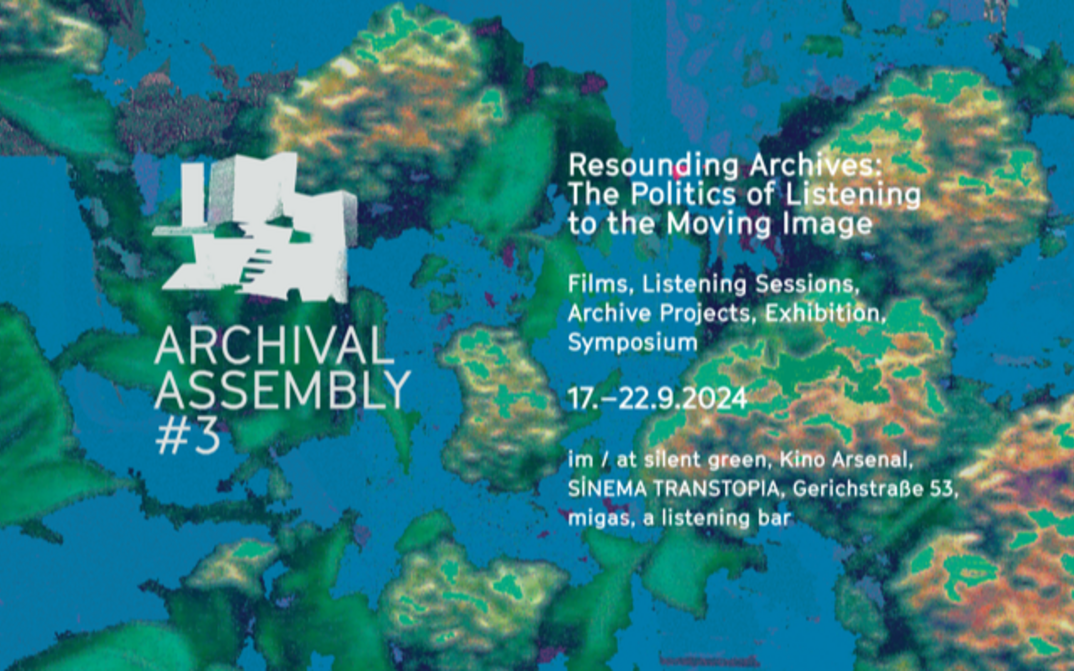Found Futures IV: Oral History

Sat 21.09.
15:00
Cinema
SİNEMA TRANSTOPIA
zu dem KalenderFree admission
Saturday, September 21, 2024
15:00–17:30
Found Futures 4: Oral History
Hadi Alipanah, Ayman Nahle, Monika Borgmann, Mohamad Soueid
Moderation: Lisabona Rahman
How can we use photos, scripts, empty film cans, and descriptions by the filmmakers to create new films about the original ones which no longer exist? How can we watch the lost films if they are still lost? In this presentation, Hadi Alipanah will share new material and information about the progress of his research on the Cinema-ye Azad movement in Iran (1969-1979), as well as screen works-in-progress made with archival material.
Ayman Nahle and Monika Borgmann of the UMAM Documentation & Research and renowned film critic, filmmaker, and writer Mohamad Soueid will discuss the cinematic legacy of Youssef Fahdeh, an influential yet overlooked filmmaker and pioneer of Lebanese cinema. Representing different generations, Nahle, Borgmann, and Soueid will shed light on Fahdeh’s contributions to cinema and the challenges of preserving his work.
Born in Iran in 1986, Hadi Alipanah is a film critic, journalist, and scholar. He began his career in 2008, writing reviews for specialized short film magazines and several other journals and newspapers. For many years, he has organized short film festivals, curated short film screenings, and supervised the production of hundreds of shorts. In 2015, he founded FiDAN, Iranian short film magazine as an independent platform for introducing Iranian short films and filmmakers. His ongoing research on the history of short films in Iranian cinema led him to discover the activities of the short film collective Cinema-ye Azad, which was active in Iran between 1969 and 1979, as well as more than 300 forgotten 8mm shorts.
Ayman Nahle is a visual artist, filmmaker, cinematographer, film editor, and film archivist. Since 2014, Nahle has collaborated on E-Flux New York’s project The Institute of the Cosmos as the cinematographer for films by Anton Vidokle. He has also co-produced and directed many short films. His work has been showcased in cinemas, film festivals, galleries, and museums around the world. Since 2020, he has been actively involved in archival practices, contributing to various workshops and research projects as an audiovisual archivist for the collections of UMAM Documentation & Research (UMAM D&R).
Monika Borgmann is a film director and journalist. She co-founded UMAM Documentation and Research (UMAM D&R) in Lebanon in 2005 along with Lokman Slim, with whom she co-directed UMAM D&R until his assassination in February 2021. As Director of UMAM D&R, she is responsible for the management of projects, research, and archives (audiovisual and written) on themes related to violence and conflict, carceral dynamics, memory, and art and cultural history. She has both German and Lebanese citizenship.
Mohamed Soueid, after studying chemistry at Lebanese University, began working as a film critic and writer. His publications include books on Arab cinema (in Arabic). Since 1990, he has produced several independent films as well as works for television. He became known internationally through his autobiographical Civil War Trilogy: Tango of Yearning (1998), Nightfall (2000), and Civil War (2002). Soueid is considered a pioneer of the Lebanese essay film. He taught for several years as a film professor at Saint Joseph University, Beirut, and in 2002 became a producer at O3 Productions, the documentary film subsidiary of the MBC Satellite Group. Soueid continues to work as a director of independent films as well as author and columnist.
Lisabona Rahman is a freelance consultant and programmer currently based in Berlin. She has created archival film screening programs for festivals, archives, and galleries. Her works have been conceived and shown with the support of different institutions such as Arsenal – Institute for Film and Video Art, Eye Filmmuseum Amsterdam, Film Archive Public Organization of Thailand, and rubanah underground hub Jakarta.